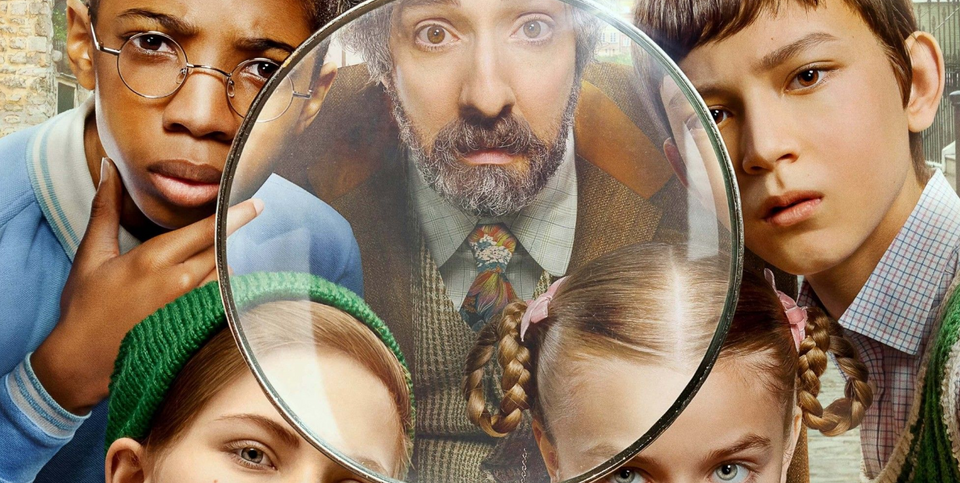Noah Baumbach‘s latest film, Greenberg, begins with the buoyancy of his nineties films, particularly Mr. Jealousy (1997) and Kicking and Screaming (1995). Both Generation X films are the dialogue-driven character studies that distinguish this Academy Award-nominated director, but they just don’t have the human piranhas of his recent films Margot at the Wedding (2007) and The Squid and the Whale (2005) .

But lest we be lulled by the misty sunlight and comically kind driver in the opening shots, the film soon hints that it won’t be all sunshine and smiles. The unassuming Florence (Greta Gerwig) works as personal assistant for the Greenbergs, a wealthy Los Angeles family, and she is soon to meet the piranha. Her employer’s brother Roger Greenberg (Ben Stiller) will be house-sitting while they are on vacation in Vietnam, and they’ve given him her phone number. Oh and by the way, the Greenbergs tell her, Roger just got out of a mental hospital.
While Margot at the Wedding and The Squid and the Whale featured multiple self-absorbed characters, Greenberg proves it only takes one narcissist to elevate dialogue (the characters have to keep up with Roger Greenberg’s caustic intellect) and raise existential questions (they have to fight for their identities as Greenberg tries to make interactions all about himself). In Greenberg, most of these existential questions stem from anxiety, and the characters’ successes–and the degree to which hope exists for them–hinge on their ability to win against fear.
Roger Greenberg’s fears are most noticeable; he has just suffered a nervous breakdown. Baumbach and co-writer (and wife) Jennifer Jason Leigh leave this anxiety unspecified, but we know that it manifested in bodily disconnection. One day, Greenberg couldn’t feel his legs. Though he’s on meds and out of the hospital, he’s still paralyzed, even if not physically. He’s unable to know who he is or what he is feeling.
This leaves him disconnected from why others feel the way they do, which in turn makes him a menace. Fifteen years ago, not realizing that he had power to set his friends’ lives adrift as much as his own, he let his fear keep his band from signing a record deal. Neither he nor his friends can let this mistake go.
He calls these old friends the minute he’s back in his native L.A, but it’s more a ritualized restlessness than a desire to see them again. In moments that ache on screen, he paces around the house practically shaking until he picks up the phone. When one person isn’t around, he goes down his list until someone can meet him. Even though he ruthlessly describes Florence as someone you’d only like if you worked in an office with her, he keeps calling her. Sometimes one friend isn’t enough to make him feel like he’s not alone. He calls Florence while out to dinner with former band-mate Ivan (Rys Ifans), and in a moment that clinches his schmuckiness, when Florence arrives he ducks out to call former girlfriend Beth (Jennifer Jason Leigh) to ask for a date.
When Greenberg is alone, he fears being alone, but when he is with people, his social skills are nil. He asks for a drink the minute he steps into Florence’s apartment, the second time they have ever met each other. Later, when he makes sexual advances to Florence, he is clumsy to the point of being harsh. The combination of Florence’s sweet acquiescence and Greenberg’s headlong rush to assuage his loneliness makes this sex scene look so cold, awkward, and loveless it’s almost an assault.
Because Greenberg is disconnected from himself and others, it doesn’t dawn on him that Florence herself battles fear. He sees millennials as brave. “There’s a confidence in you guys that’s horrifying,” he tells twenty-year-olds at a party after snorting coke with them. “I’m freaked out by you kids.”
Florence’s fear does not make her cruel – she is a sincere and lovely person – but it causes her pain. In the film’s opening moments, she tells her insensitive employer that it’s okay; he doesn’t need to pay her right now. It’s been three weeks, but it’s okay. In the next scene, she borrows $40 from a friend.
Florence, who seems younger than twenty-five underneath her grandmother sweaters and old-fashioned name, is a new character type for Baumbach. She provides a way for Greenberg to explore the relationship between Gen-X and millenials, one of this layered film’s many themes. Florence’s eagerness to please keeps leading her to things she doesn’t want to do–especially casual sex when it’s clear she wants lasting connection.
Anxiety cuts these two characters off from each other. They are both tormented not just by loneliness but also by the same cyclical fear: they are doing nothing with their lives. Florence tells someone that she’s been out of college as long as she’s been in, and nobody cares if she gets up in the morning. Greenberg keeps telling people that he’s just doing nothing for awhile, but he justifies this to Florence: “You know I almost had a record deal when I got out of college. I haven’t done nothing…I’m doing nothing deliberately.”
It’s a nervous cycle. Fear of doing nothing produces anxiety and anxiety becomes debilitating. This would keep the characters cut off from each other and keep the movie hopeless, if not for Ivan. Greenberg’s friend Ivan offers the two an exit lane out of their fears. They–particularly Greenberg–are presented with an exemplar. Ivan has overcome. Fifteen years ago, he was an addict. Now, he drinks a blend of iced-tea and lemonade. Hip but weary, Ivan stands on the spectrum between Greenberg’s narcissistic edginess and Florence’s people-pleasing fear. Baumbach said he wanted Ivan’s character to have “a gentleness in him,” and he does. Ivan is the only friend from the band who always picks up the phone and keeps coming over when Greenberg asks him.
Where Greenberg is alienated, Ivan is reconciling. He’s been living in a motel since he and his wife separated, but later he tells Greenberg they’re going to give it one more go. Ivan never thought he would be a family man, but he’s facing the difficulties of close relationships and embracing the life he never thought he would have.
Where Florence is compulsive about saying yes, Ivan is honest. When Greenberg wants to start up the band again, Ivan tells it like it is – he has a job now; he can’t just do that.
There is hope for Florence and Greenberg, but the ending depends on the extent to which they have overcome fear. In the final scenes, are we seeing Greenberg’s frenetic effort to get away from yet another situation he is in, or his true pursuit of the situation he is going to? Does Florence want things the way they end up, or is she afraid of things being different? The audience hopes the last scene is not the start of one more lonely cycle, and is given reasonable grounds for expecting it to be the start of something new.
“I guess we all, a lot of us, spend a lot of time keeping our Greenbergs at bay,” Rys Ifans reflected in an interview. And I guess we all, plenty of us, spend plenty of energy keeping our Florence-like fears at bay, which makes these characters easy to relate to. We hope that what is sincere and lovely can bring us into true connection.



